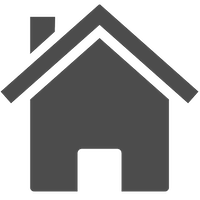Let's talk about
Abuse
For Parents of Grades 7-12
Abuse and neglect are topics that are often ignored because the stories can be difficult to hear about and upsetting to share; however, ignoring the reality will not change the reality.
We have shared resources and some information with our students about the types of abuse and the importance of creating personal boundaries in order to have healthy and safe relationships.
Building these habits early and identifying relationship standards will serve them for a lifetime. Please take time to read the facts below, and check out some of the resources to learn more in case you child reaches out to your with his or her questions. This communication about our mandated prevention topics will demonstrate to your child that we have the same goal: keeping them safe and healthy.
Did You Know
It’s estimated that at least 1 in 7 children in the US has experienced child abuse and/or neglect in the past year.1
Neglect is the most common form of child abuse, followed by physical abuse, sexual abuse, and psychological abuse.2
In 2018, about 16% of children who were abused experienced more than one kind of maltreatment.2
Children who experienced any form of violence in childhood have a 13% greater likelihood of not graduating from high school.3
Adult survivors of childhood abuse are more likely to experience mental health difficulties, including depression, anxiety, bipolar disorder, PTSD, eating disorders, and substance use disorders.4
There are 42 million survivors of child sexual abuse in America. 3 million are children, which would fill 46 national football stadiums.5
90% of children are sexually abused by someone they know and trust.5
There are over 747,000 registered sex offenders in America.5
It’s estimated that at least 1 in 7 children in the US has experienced child abuse and/or neglect in the past year.1
Neglect is the most common form of child abuse, followed by physical abuse, sexual abuse, and psychological abuse.2
In 2018, about 16% of children who were abused experienced more than one kind of maltreatment.2
Children who experienced any form of violence in childhood have a 13% greater likelihood of not graduating from high school.3
Adult survivors of childhood abuse are more likely to experience mental health difficulties, including depression, anxiety, bipolar disorder, PTSD, eating disorders, and substance use disorders.4
There are 42 million survivors of child sexual abuse in America. 3 million are children, which would fill 46 national football stadiums.5
90% of children are sexually abused by someone they know and trust.5
There are over 747,000 registered sex offenders in America.5
Parent
Tips
Intentions
Help your children understand that not everyone they meet online will have the right intentions.
Boundaries
Talk to your children about boundaries and help them feel safe in reporting to you or trusted adult(s) at school.
Listen
Listen to your children when they say something makes them uncomfortable. Please do not dismiss it.
Understand
Understand that they are growing up in a different world in which not all adults can be trusted, not all people who claim to be friends are actually friends, and predators have additional avenues for invading their personal life.
Healthy Relationships
Model healthy relationships by having those visible to your children.
Educate Yourself
Educate yourself and encourage your children to do the same.
Intentions
Help your children understand that not everyone they meet online will have the right intentions.
Boundaries
Talk to your children about boundaries and help them feel safe in reporting to you or trusted adult(s) at school.
Listen
Listen to your children when they say something makes them uncomfortable. Please do not dismiss it.
Understand
Understand that they are growing up in a different world in which not all adults can be trusted, not all people who claim to be friends are actually friends, and predators have additional avenues for invading their personal life.
Healthy Relationships
Model healthy relationships by having those visible to your children.
Educate Yourself
Educate yourself and encourage your children to do the same.




